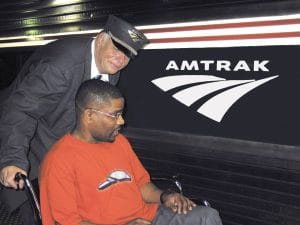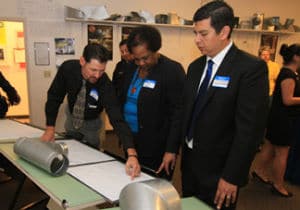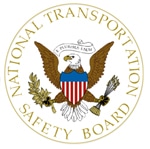
While politicians can’t agree on much, Iowans and the majority of Americans surely agree on one thing: They want more Amtrak service, not less.
On the heaviest traveled passenger rail corridor in the nation, the Northeast Corridor, Amtrak keeps breaking ridership records. But the untold story is that in a large swath of less-traveled rail corridors in middle America, including Iowa, people want Congress to keep investing in and expanding Amtrak service.
It is time for Congress to listen and stop pursuing risky defunding and private contracting schemes.
Amtrak recently reported that its trains carried a record 31.6 million passengers last year, up from 20 million in 2000. And ridership on the California Zephyr and Southwest Chief lines, which traverse Iowa across southern counties, also saw a healthy spike in ridership.

No wonder a new poll of Iowans conducted by St. Paul, Minn.-based DFM Research shows that more than seven out of 10 residents in Polk County and the southwestern counties of the state want to increase federal government investment in Amtrak, or at the very least keep it the same.
So why are some in Congress constantly pointing to federal spending on Amtrak as wasteful?
If members of Congress listen, they will hear a message loud and clear on an issue that is a vital part of every American’s life. Whether they live in red or blue states, in crowded cities or rural areas, in southwestern Iowa or in Polk County, are Republicans or Democrats, old or young, Americans want to ride Amtrak.
In Iowa’s 3rd Congressional District that encompasses Des Moines, the message couldn’t have been any clearer. Among Democrats, the keep-or-increase percentage rises to 87 percent, while 64 percent of independents agree and a hefty 59 percent of Republicans agree.
Even among those who have not ridden Amtrak in recent years, 72 percent want to keep or increase the passenger railroad’s federal funding.
These findings aren’t limited to Iowa. In six middle-America states — Iowa, Illinois, Indiana, Colorado, Kansas and Missouri — 70 percent of the people say they want more Amtrak service, and they want the government to fund it.
In other words, Amtrak isn’t a blue state thing or a red state thing. It is an American thing.
Tens of thousands of Iowans who value their Amtrak service are increasingly taking the train each year and seek more connections to cities such as Chicago. The business community has joined the choir as well, understanding that passenger rail expansion is good for business and job creation. And for good reason: For every $1 Iowa spends in this sector about $4 is injected back into the state’s economy.
This is a no-brainer during the still anemic economic recovery.
Members of Congress need to get that message, and get it fast, as they prepare to rewrite the law that governs and funds Amtrak and that will decide who in Iowa and other parts of middle America will get to keep their service or ride new train service.
Americans’ appetite for Amtrak service is growing regardless of their political views. This train has long left the station, and the American public is on board.
The preceding column was co-authored by SMART Transportation Division President John Previsich and AFL-CIO Transportation Trades Department President Edward Wytkind. It was published Oct. 28 by the Des Moines Register.




 On Monday, Deborah Hersman was sworn in to serve a third two-year term as chairwoman of the National Transportation Safety Board (NTSB).
On Monday, Deborah Hersman was sworn in to serve a third two-year term as chairwoman of the National Transportation Safety Board (NTSB). A CBC News investigation has unearthed allegations that suggest CN Rail has routinely under-reported minor derailments and misrepresented its yard efficiency measurements across Canada and the U.S.
A CBC News investigation has unearthed allegations that suggest CN Rail has routinely under-reported minor derailments and misrepresented its yard efficiency measurements across Canada and the U.S.